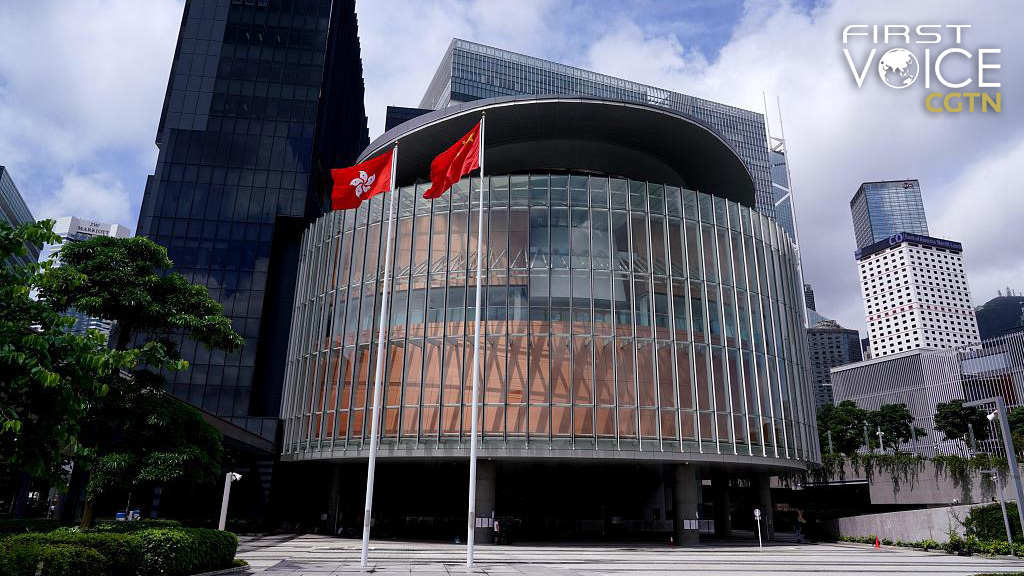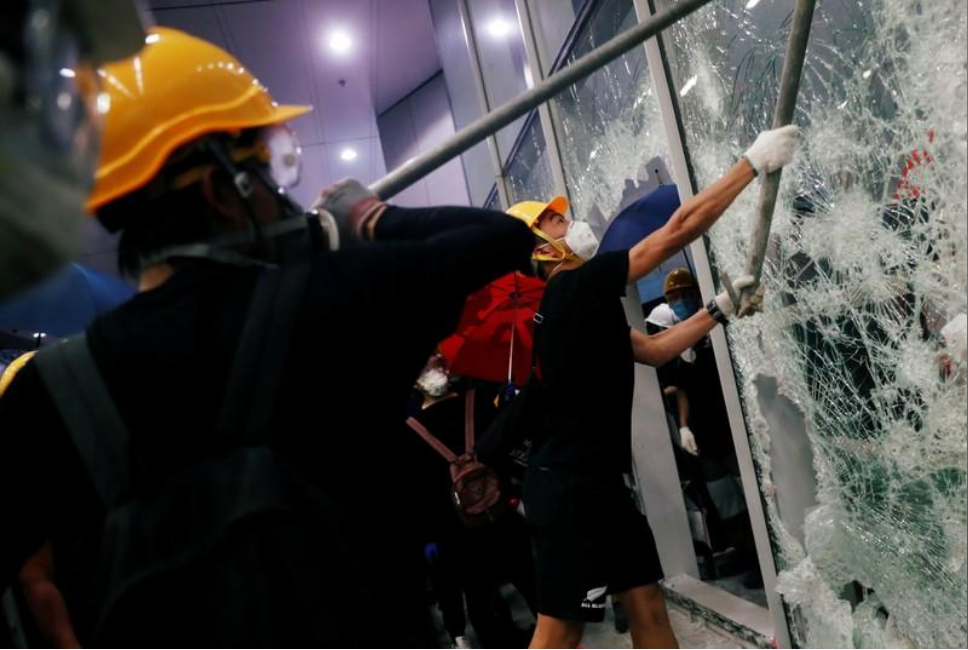
The Legislative Council building of the Hong Kong Special Administrative Region in Hong Kong, China. /VCG
The Legislative Council building of the Hong Kong Special Administrative Region in Hong Kong, China. /VCG
Editor's note: CGTN's First Voice provides instant commentary on breaking stories. The daily column clarifies emerging issues and better defines the news agenda, offering a Chinese perspective on the latest global events.
The Hong Kong Legislative Council (LegCo) passed a bill authorizing improvements to the Special Administrative Region's electoral law on Wednesday.
With 40 votes in favor and two against, the bill will expand the number of LegCo seats to 90, making the city's political spectrum broader. The improvements are believed to attract more talents, including those previously upset by political unrest, to the city's legislature. The "patriots administering Hong Kong" principle has plugged the electoral loopholes that would otherwise be used by external forces to destroy the city.
In addition, the passage in May means the three major elections of the Election Committee, the LegCo and the Chief Executive can be held smoothly in less than a year. Following the street violence over the past years, the electoral system returning to normal is in the interest of not only local people, but also the city's growth.
As expected, the passage provoked condemnation from Washington. U.S. Secretary of State Antony Blinken denounced the election law as a "denial of democracy," accusing it of limiting the public's involvement in elections.
Hong Kong's latest legislative move is in line with the Basic Law, and represents the well-being of the region as a whole. The LegCo conducted three readings, debated amendments, and deliberated the bill in accordance with its proper functions before passing it. This respects the city's own procedures, illustrates the process of Hong Kong democracy, and conforms to the One Country, Two Systems principle.
Critics are calling for so-called democracy, but their behavior ultimately constituted a serious disruption of the system as opposed to safeguarding checks and balances. Hong Kong separatists, in collusion with external forces, on multiple occasions attempted to paralyze the Legislative Council and filibuster the stable governance of the city, not least through refusing to swear allegiance to the central government and launching radical unrest and riots that threatened public security.

Protesters break into the Legislative Council building during the anniversary of Hong Kong's return to China, Hong Kong, China, July 1, 2019. /Reuters
Protesters break into the Legislative Council building during the anniversary of Hong Kong's return to China, Hong Kong, China, July 1, 2019. /Reuters
In this case, the proposed vetting of future electoral candidates stands to reason. Those who participate in the Hong Kong Legislative Council must be loyal, patriotic and committed to the city's status as an inalienable and sovereign component of the People's Republic of China under the “One Country, Two Systems” principle.
Some Western media outlets present this as "control" by Beijing. This is false. Hong Kong being a part of China does not alter the fact that the city continues to possess its own administrative, legislative, societal, educational, and economic forms of organization which are run locally and which the Council accordingly is vested to oversee. Nothing in this light changes under the new law.
Given this, the new electoral system positions the LegCo to focus as it was intended on local issues and administer a local democracy in accordance with the Basic Law, wherein a wide range of public debate, interests and disagreement will continue to exist and be deliberated accordingly.
This is in contrast to the opposition seeking to abuse their status, provoke unrest and stand for nothing but an attempt to subvert and break the system entirely, promote the cause of Hong Kong independence and collude with foreign powers. That is not governance or democracy. It is chaos.
Local democracy remains important, but just as philosopher John Stuart Mill warned, one must not allow "the tyranny of the majority." The riots of 2019 were a catastrophe that duly threatened the well-being, prosperity and stability of Hong Kong, risking a cycle of endless violence and barbaric destruction.
Subsequently, the latest electoral improvements help restore much-needed stability to the city without ceding its privileges under the Basic Law. This provides a greater good to the city. The new election law will not only restore peace, but ensure that Hong Kong can be governed properly and maturely in accordance with the Basic Law, and the “One Country, Two Systems” principle that subsequently meet obligations entailed in the Sino-British declaration.
(If you want to contribute and have specific expertise, please contact us at opinions@cgtn.com.)

